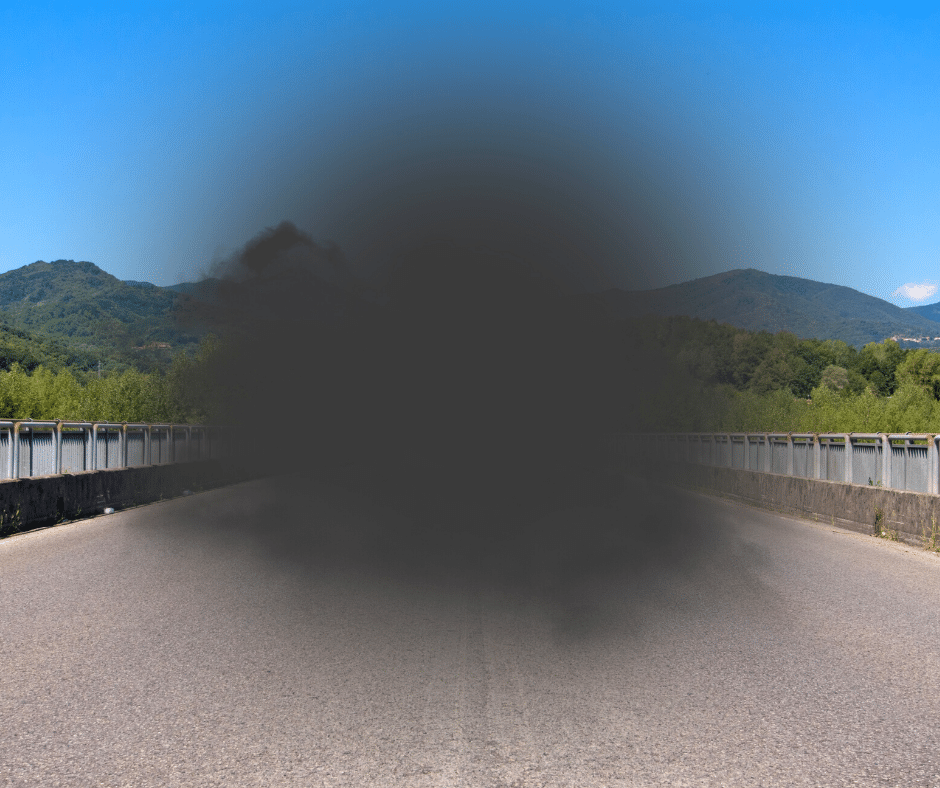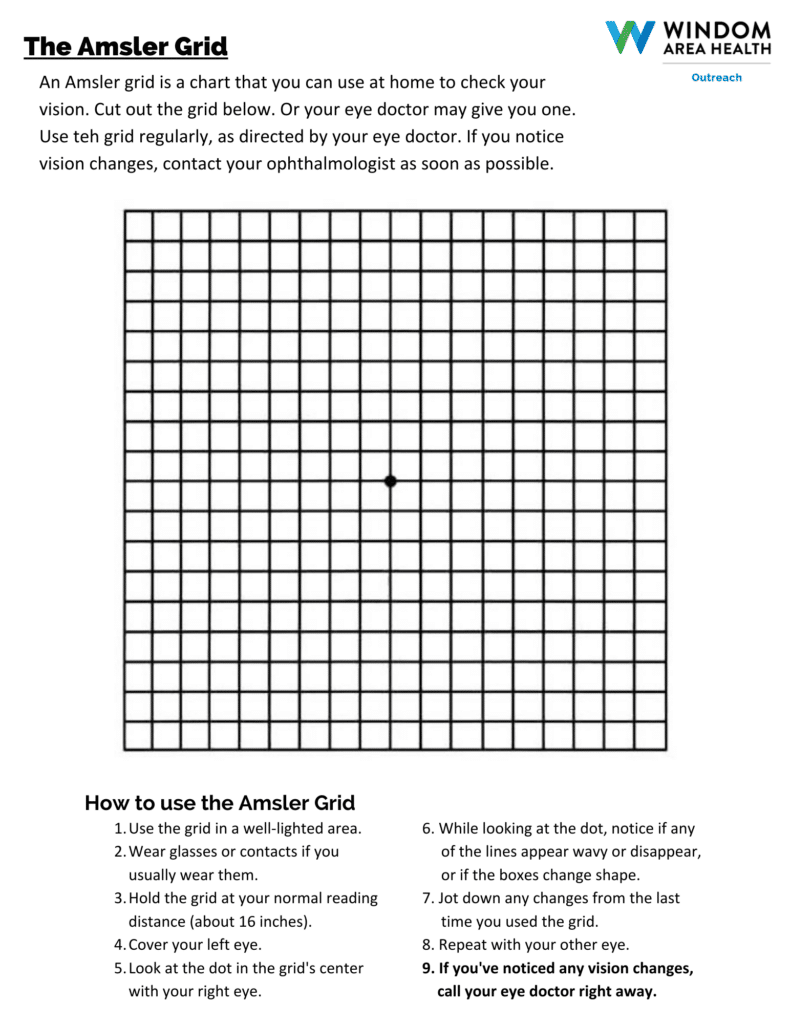February is AMD and Low Vision Awareness Month and we wanted to take a moment to delve into what exactly AMD is and steps you can take to prevent an manage it. Age-related macular degeneration (AMD) is a common cause of vision loss in people over age 60. You may already have it or you may be concerned because you’re at risk for it.

The eye receives and processes light, allowing you to see. Central vision is the sharp, detailed vision that you use when you look straight ahead. Peripheral vision is side vision – the less acute vision that you may call “seeing out of the corner of your eye.” AMD affects the central vision.
There are two kinds of macular degeneration: DRY and WET. AMD may be either kind. Dry macular degeneration is more common. It usually does not cause severe vision loss. Wet is rarer, but it is more likely to cause severe vision loss. Dry macular degeneration can sometimes develop into wet macular degeneration.
What you may see:
AMD can cause loss of sharp central vision in one or both eyes. With AMD, you may have no obvious vision loss or you may have fuzzy or blurry areas, distorted lines and wavy edges, faded color vision, dark spots in your central vision or vision that varies from day to day.
What you can do at home:
Whether you have AMD or are at risk for it, there are ways you can protect the vision that you have. Vision monitoring and regular eye exams can help you and your eye doctor work together to preserve your vision. Protecting your general health helps to preserve your eye health and your vision. These tips may help delay or prevent dry AMD from progressing.
- Eat a healthy diet with plenty of fruits and vegetables.
- Leafy greens such as spinach and kale are especially good for protection against AMD.
- Nutritional supplements with high levels of antioxidants and zinc have been shown to reduce the risk of developing advanced AMD. AREDS II is an example of a good supplement to use.
- Control your blood pressure.
- Use sun protection.

Treatment:
Your doctor may suggest treating your wet AMD with a laser or injections of anti-VEGF medication. These treatments may stop vision loss from getting worse, but they rarely restore sight you’ve already lost. At this time, both treatments are available only for wet AMD.
If you recognize any of the symptoms above or are concerned you may be at risk for Age-Related Macular Degeneration or other conditions that could cause low vision, don’t hesitate to reach out to Dr. West of Ophthalmology Ltd. as part of the Windom Area Health Outreach services. Call 800-888-1433 to schedule an appointment with Dr. West at Windom Area Health.
By David R. West, MD, and Cindy Olson, Primary Nurse
